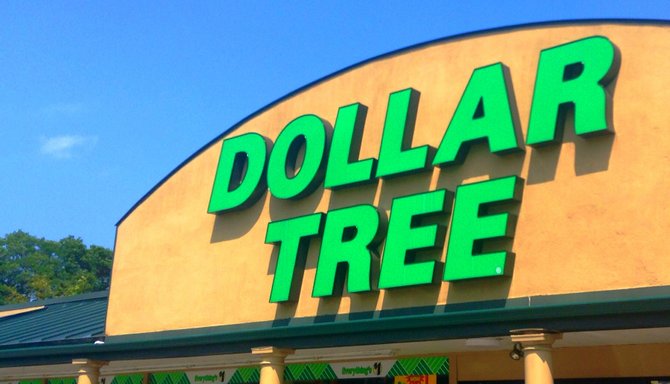Sales at dollar stores have been suffering because the lower-income customers who go to them are facing persistent job instability and slow wage growth in the aftermath of the recession. Wal-Mart Stores Inc. and Kroger Co. also have been opening smaller store formats to directly compete with dollar stores.
NEW YORK (AP) — The fight for penny pinchers is intensifying.
Dollar Tree said Monday it is buying rival discounter Family Dollar for $8.5 billion, significantly broadening its reach as it looks to fend off Wal-Mart, which has been stepping up its courtship of lower-income customers.
The deal makes Dollar Tree the biggest player in the dollar store segment, with its more than 13,000 combined locations eclipsing current leader Dollar General Corp., which has about 11,300.
Dollar stores grew during the recession as people across income groups searched for cheaper options. To attract a broader array of customers, dollar stores also expanded their offerings to include more groceries and brand-name products, instead of just the party favors and other knickknacks people often associated with them.
More recently, however, sales at dollar stores have been suffering because the lower-income customers who go to them are facing persistent job instability and slow wage growth in the aftermath of the recession. Wal-Mart Stores Inc. and Kroger Co. also have been opening smaller store formats to directly compete with dollar stores.
Brian Sozzi, CEO and chief equities strategist at Belus Capital Advisors, said Dollar Tree's deal will allow it to ultimately lower prices because it will be able to cut expenses by merging some operations. That will enable it to better compete with Wal-Mart, which built its business on having everyday low prices.
"Now they're going to take the fight back to Wal-Mart," Sozzi said.
The deal gives Dollar Tree more flexibility.
Dollar Tree is true to its name, with everything in its stores costing just a buck. The fixed pricing has helped attract more customers and boosted sales, but it also puts the company in a tough spot as inflation pushes up its costs and pressures profit margins. Family Dollar is far more flexible in its pricing, which allows it to sell a greater variety of items, including Kraft cheese and Tide laundry soap, at various price points.
Still, Family Dollar, which has more than 8,000 locations, has been shuttering stores and cutting prices in hopes of boosting its financial performance. Last month, investor Carl Icahn urged the company to put itself up for sale. Icahn has built up a stake in the company of more than 9 percent, according to regulatory filings. Based on his purchase price at the time, he stands to make nearly $200 million from the deal.
On Monday, Dollar Tree CEO Bob Sasser said that the two companies "co-locate really well" and offer complementary merchandise.
The companies did not say if any Dollar Tree or Family Dollar stores would be closed. Dollar Tree, which has about 5,000 locations, will continue to operate under the existing Dollar Tree, Deals, and Dollar Tree Canada store banners. It will keep the Family Dollar brand as well, with Chairman and CEO Howard Levine reporting to Sasser.
Representatives for Wal-Mart and Kroger weren't immediately available for comment. A representative for Dollar General, which last year reported sales growth of 9 percent, was not immediately available for comment.
Stockholders of Family Dollar Stores will receive $59.60 in cash and the equivalent of $14.90 in shares of Dollar Tree for each share they own. The companies put the value of the transaction at $74.50 per share, which is an approximately 23 percent premium to Family Dollar's Friday closing price of $60.66.
Including debt and other costs, the companies estimate the deal to be worth more than $9 billion.
Family Dollar stockholders will own somewhere between 12.7 percent and 15.1 percent of Dollar Tree's outstanding common shares at closing. Dollar Tree plans to finance the deal with available cash, bank debt and bonds.
The boards of both companies unanimously approved the deal, which is expected to close by early next year. It still needs approval from Family Dollar shareholders.
Shares of Family Dollar Stores Inc., which is based in Charlotte, North Carolina, surged $14.89 to $75.55 in premarket trading. The record high during regular trading is $75.29.
Shares of Dollar Tree Inc., based in Chesapeake, Virginia, jumped 10 percent, or $5.50 to $59.72. The all-time high for that stock is $60.19.
Copyright Associated Press. All rights reserved. This material may not be published, broadcast, rewritten, or redistributed.


